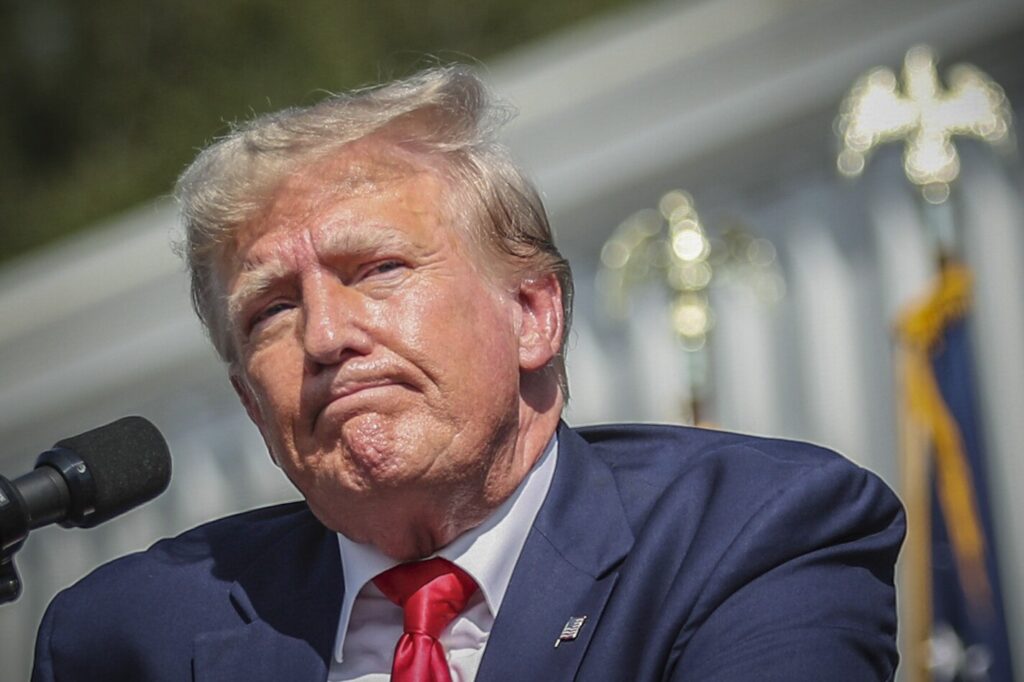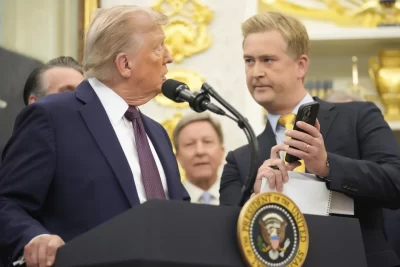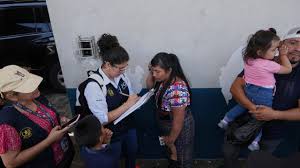
FILE - Former President Donald Trump pauses before ending his remarks at a rally in Summerville, S.C., Sept. 25, 2023. A New York judge ruled, Tuesday, Sept. 26, 2023, that the former president and his company committed fraud for years while building the real estate empire that catapulted him to fame and the White House. (AP Photo/Artie Walker Jr., File)
Donald Trump’s lawyers asked a New York appeals court Friday to halt his Manhattan civil fraud trial while they fight a court ruling that calls for dissolving companies that control some of the former president’s most prized assets, including Trump Tower.
Trump’s lawyers asked the state’s intermediate appellate court to suspend the trial in New York Attorney General Letitia James’ lawsuit and prevent Judge Arthur Engoron from enforcing his ruling of last week, which revokes the Republican frontrunner’s business licenses and puts a court-appointed receiver in charge of his companies.
Engoron “clearly does not comprehend the scope of the chaos (his) decision has wrought,” Trump lawyers Clifford Robert, Michael Farina and Michael Madaio wrote in a 41-page appellate brief filed as the non-jury trial entered its fifth day of testimony.
Taking Trump’s companies “will unquestionably inflict severe and irreparable harm,” not only on Trump and other defendants, but employees and others “who depend on the affected entities for their livelihoods,” Trump’s lawyers argued.
The appellate court last week rejected the defense’s last-minute effort to delay the trial just days before it began. On Thursday, Trump’s lawyers dropped a lawsuit they filed against Engoron as part of that challenge.
James’ office said it was willing to discuss delaying enforcement of Engoron’s ruling until after the trial and a decision on six remaining claims in her lawsuit against Trump and other defendants. But, only if the trial proceeds as scheduled, Senior Assistant Solicitor General Dennis Fan wrote in a letter to the appellate court.
Fan argued against “upending an ongoing trial midstream,” noting the extensive court planning and security resources expended for Trump to attend the first three days of testimony, special arrangements for press and public access, and the impact that a delay would have on witnesses who’ve cleared their schedules to testify.
“The defendants can continue to try to delay and stall, but the evidence is clear, and our case is strong. We are confident justice will prevail,” James said.
Engoron ruled last week that Trump committed years of fraud as he built the real estate empire that vaulted him to fame and the White House.
The judge, ruling on the top claim in James’ lawsuit, found that Trump routinely deceived banks, insurers and others by exaggerating the value of assets on his annual financial statements, which were used in making deals and securing loans.
Trump has denied wrongdoing, arguing that some of his assets are worth far more than what’s listed on the statements.
On Thursday, Engoron issued an order setting procedures for enforcing his ruling. He gave both sides until Oct. 26 to submit names of potential receivers and gave Trump and other defendants seven days to provide a court-appointed monitor, retired federal judge Barbara Jones, with a list of all entities covered by the ruling.
He also ordered the defendants to give Jones advance notice of any application for new business licenses in any jurisdiction and any attempts to create new entities to “hold or acquire the assets” of a company that’s being dissolved under the ruling.
Trump’s lawyers argued that Engoron had “no rationale or legal authority” to impose what they described as “the corporate death penalty.” They also rapped the judge for not being clear in explaining the real world effects of his decision.
At a pretrial hearing on Sept. 26, Trump lawyer Christopher Kise pressed Engoron to clarify whether his ruling meant Trump would be required simply to close up some corporate entities or if he’d be forced to relinquish some of his most prized assets.
Engoron said he wasn’t “prepared to issue a ruling right now.”
“Perhaps most alarming is (the court’s) incomprehension of the sweeping and significant consequences of its own ruling,” Trump’s lawyers said in their appeal Friday, describing Engoron’s ruling as an “overbroad directive that sows confusion and chaos in its implementation.”




